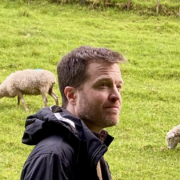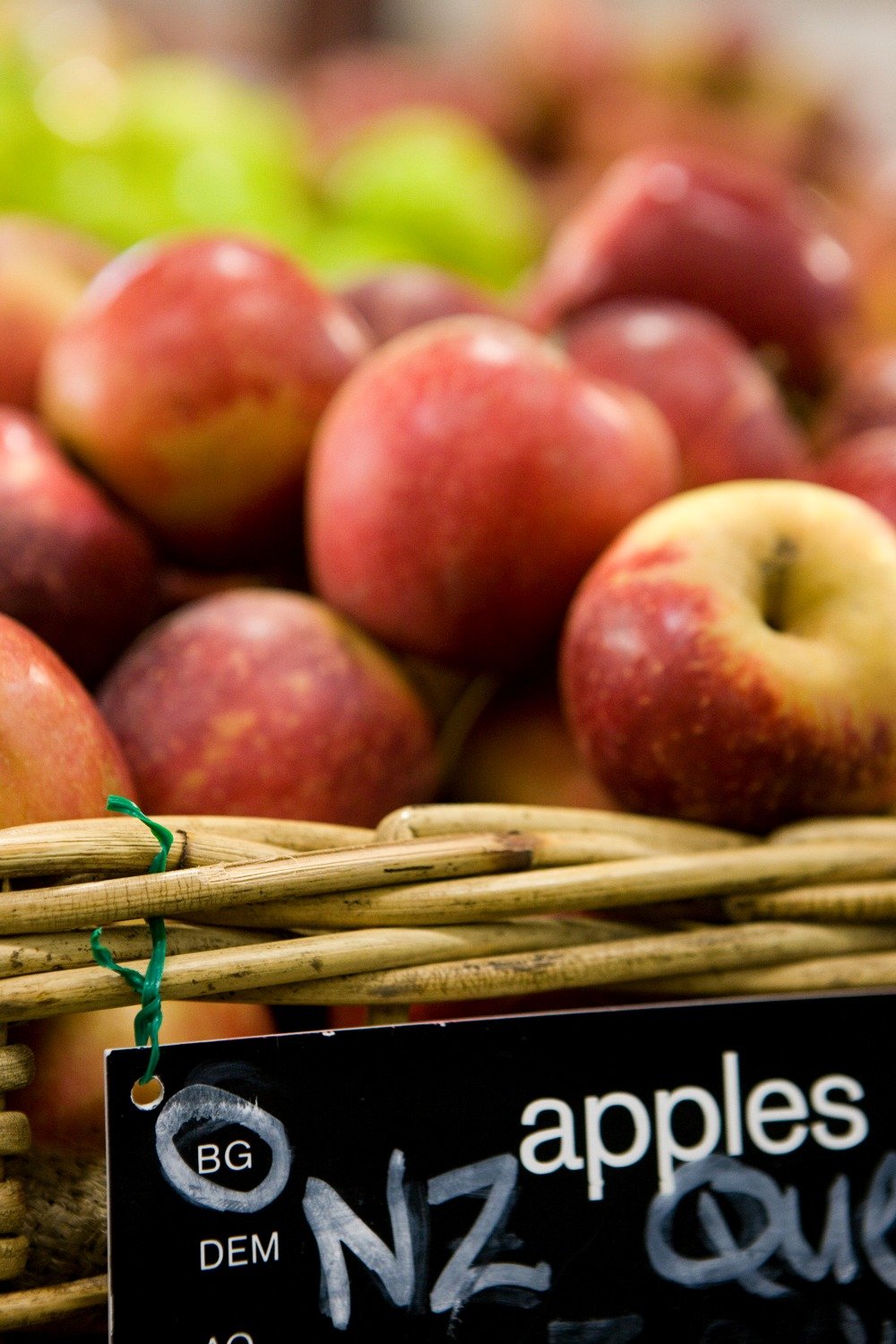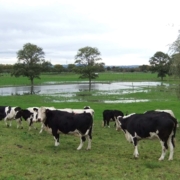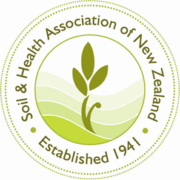The Gene Tech Bill Tightrope
What New Zealand’s Proposed Genetic Engineering Rules Could Mean for Organics
By Charles Hyland, chair of the Soil & Health Association of New Zealand
When the Government released the Gene Technology Bill in late 2024, it advanced a proposal that could reshape how Aotearoa New Zealand manages genetic technologies for many years to come. We have a short and critical window of opportunity to influence this for the benefit of the organic and wider farming community, the New Zealand public and the environment.
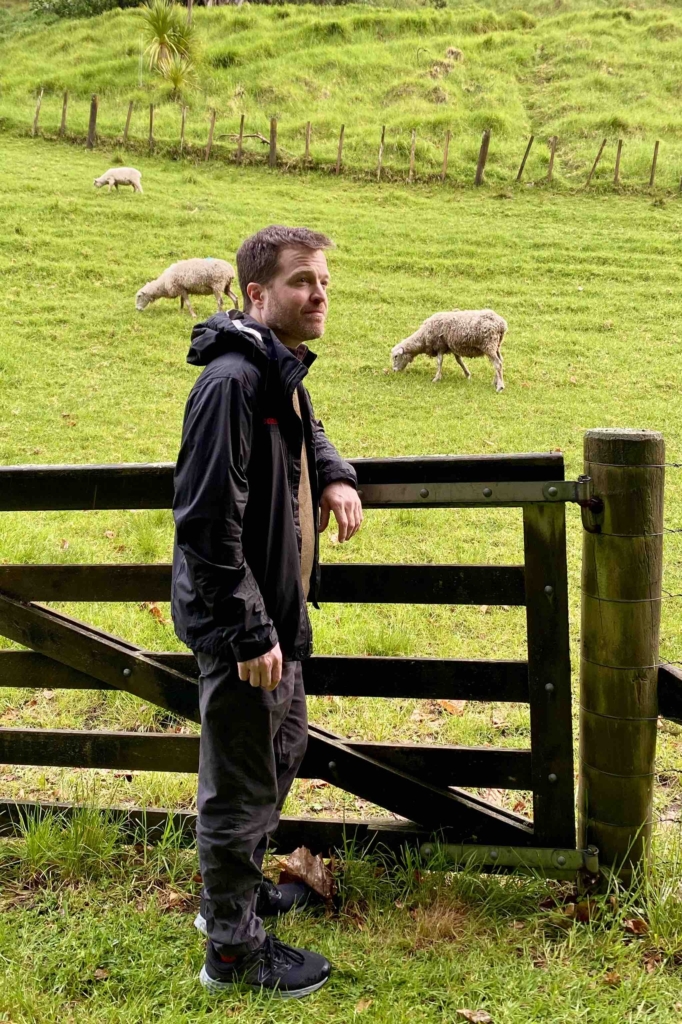
For decades, the organic movement has maintained an unambiguous position on genetic engineering: it has no place in organic systems.
This position is not solely about the safety or otherwise of specific technologies. It is about protecting ecological integrity, sustaining consumer trust in food systems, and safeguarding the right of communities, growers, and consumers to choose farming systems that remain free from genetic contamination.
Above: Charles Hyland
The Gene Technology Bill represents the most significant attempt to rewrite Aotearoa’s genetic rules since the Hazardous Substances and New Organisms Act 1996 was passed nearly thirty years ago. It therefore represents a critical juncture in the country’s relationship with biotechnology, food, agriculture, and the environment.
A legislative reset
The original version of the bill, introduced in late 2024, was designed to remove gene technology regulation from the Hazardous Substances and New Organisms (HSNO) framework and place it into a dedicated new system. This new framework would create a single Gene Technology Regulator supported by advisory committees and a risk-tiered approval system. Government ministers and officials presented the change as a necessary modernisation. They argued that HSNO was an outdated and overly cumbersome regime that treated all genetic technologies in a single, inflexible way. Some researchers and industry groups had long complained that HSNO imposed slow and costly approval processes, making it difficult to work with techniques such as CRISPR and other forms of gene editing. The stated goal of the reform was to reduce regulatory lag, streamline decision-making, and encourage domestic research and innovation.
To the organic community, however, this proposal triggered deep concern. The original draft of the bill allowed entire categories of genetic techniques to be declared “not regulated,” which would have created the possibility of genetically engineered organisms entering our food, farming systems and outdoor environment without any public notification, without labelling, and without clear liability mechanisms if contamination occurred. To Soil & Health, the promise of streamlining looked less like efficiency and more like a structural blind spot.
One of the most consequential elements of the original proposal is the potential redefinition of what legally counts as a “GMO” in New Zealand. By excluding certain forms of gene editing from the GMO umbrella altogether, these technologies could be treated as though they are no different from conventional breeding. This shift would not just simplify regulation; it would fundamentally alter the scope of what falls under genetic oversight, enabling some gene-edited organisms to bypass the regulatory system entirely. For the organic sector, this raises profound concerns about transparency, traceability, and market trust.
What changed in the Health Committee’s version
The Health Select Committee, which considered the draft Bill, received a large volume of submissions from environmental organisations, Māori representatives, organic producers, consumer groups, scientists, legal experts, the biotech industry, and concerned members of the public. Its revised text introduces several significant changes intended to address some of the concerns raised.
One of the most important shifts is that the committee recommends restricting exemptions to specific organisms, not to entire classes of genetic techniques. Exemptions can now only be applied on an organism-by-organism basis, and only if those organisms cannot be distinguished from conventional breeding outcomes. Under the committee’s recommendations, this determination would be made by the Gene Technology Regulator, with advice from the Technical Advisory Committee and the Māori Advisory Committee. Applicants can claim indistinguishability, but the regulator must assess and verify those claims before an exemption is granted. While this represents a shift away from industry self-declaration back to the current case-by-case regulatory decision, concerns remain about how rigorously such claims will be tested in practice and who will bear the cost of verification.
Another change is the introduction of a public schedule (a register) known as Schedule 3A. This schedule would list organisms that are not regulated GMOs and technologies that are not considered ‘gene technologies’ under the new framework. Exemptions and registration requirements sit alongside, but are separate from, this schedule. These organisms may still be genetically modified or gene edited, or the products thereof, but if they are deemed indistinguishable from conventional breeding, they will not go through the full regulatory process. While inclusion in the schedule does not trigger full oversight, it at least ensures that their status is on the public record, addressing some of the concerns from organic and environmental advocates about a lack of transparency around gene editing decisions.
The revised bill also attempts to bolster trust by clarifying the scope of ministerial powers and embedding a broader advisory system. While the Regulator would still be accountable to the Minister, the committee’s recommendations clarify and limit how ministerial directions can be issued, including ensuring these powers cannot be delegated. The Regulator would also be required to produce annual reports on its activities.
The advisory structure has been expanded to include environmental scientists, mātauranga Māori experts, and public interest voices, aiming to reduce the risk of decisions being made within a narrow technical circle. However, several submitters have questioned why a new regulatory office is needed at all, suggesting that strengthening the existing Environmental Protection Authority (EPA) might achieve similar outcomes with fewer concerns about accountability and duplication.
The parliamentary process: not law yet
The Gene Technology Bill remains at the parliamentary stage. There was not wide consultation during drafting of the Bill, and no economic impact information sought. After a first reading in December 2024, the Bill was referred to the Health Select Committee, which gave a short public submission period of only two months over the summer holiday period. The Committee received about 14,500 written submissions and approximately 1,500 requests to present oral submissions. Of those, only around 400 were granted, with presenters given just 5–10 minutes each. The Committee produced its revised draft, released on 10 October 2025. The revised Bill will return to the House for its second reading. If the bill is supported at that stage, it will go through the Committee of the Whole House, where MPs debate it line by line and propose further amendments. If it passes a third reading, it will receive Royal assent and become law.
This timeline is important because it means the content of the legislation is not yet fixed. The coming months will determine whether additional protections for the organic sector, primary producers more generally, Māori communities, and consumers are introduced, whether the bill is enacted largely in its current form, or whether it stalls for lack of sufficient support.
Regulation and public trust
New Zealand’s current HSNO regime is intentionally conservative, and many consumers see that conservatism as part of the country’s clean and trusted agricultural identity. Trust is not automatically guaranteed by legislation. It is built when the public can see what decisions are made, understand the reasoning behind them, and believe that independent oversight is in place.
The revised bill attempts to build trust through structural mechanisms, including increased transparency and clear reporting requirements for the Regulator. Yet public trust is fragile. It takes years to build and can be lost in a single regulatory failure.
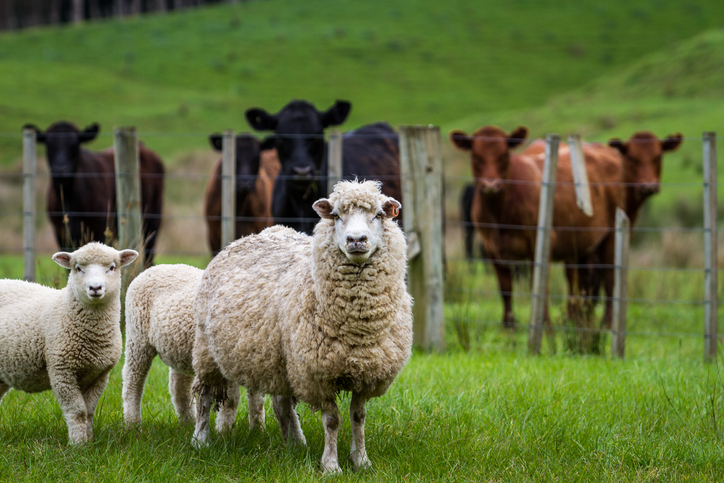
A single example could be a gene-edited crop or grass variety spreading beyond its intended trial site, contaminating nearby organic farms and compromising their certification, income, market access, and reputation, an outcome that has occurred overseas when containment measures have failed.
Organic producers, Māori communities, and environmentally minded consumers are wary not because they misunderstand gene technologies, but because they have seen how weak oversight has led to adverse irreversible consequences elsewhere.
Consultation versus shared power
The Health Committee has strengthened expectations for consultation at various stages of the regulatory process, and it requires a post-implementation review. These steps reflect recognition that gene technology decisions require more than narrow technical consideration. They have cultural, social, and economic implications.
However, advisory input is not the same thing as actual decision-making power. Māori submitters made clear that gene technology touches whakapapa, mauri, and tino rangatiratanga, and therefore raises issues of sovereignty and responsibility toward taonga species. For many Māori, being consulted after the fact is not sufficient. They are asking for meaningful influence over decisions, not just an advisory seat on the sidelines.
The organic sector’s concerns have some differences from those of Māori in content but are similar in how they play out. For Māori, gene technology interferes with core cultural values, and the bill does not comply with te Tiriti o Waitangi, which guarantees governance over taiao – the environment. For the organic sector, it is about protecting GMO-free production systems, certification, and market access. In both cases, meaningful safeguards rather than consultation alone are essential. If the regulatory system listens but fails to act, both groups risk having their concerns effectively ignored.
Monitoring and enforcement: from paper to practice
The revised bill grants the Regulator broader powers to monitor and enforce compliance. Inspectors would be able to visit both current and former sites of regulated activity. Public registers would provide visibility into what is being approved and where. Licenses could be varied urgently if new risks emerged. Penalties for violations have been streamlined and clarified.
In practice, its value depends on whether the Regulator is adequately resourced to use these powers effectively. A well-designed legal framework cannot protect the environment or organic farmers if it is not backed by funding, staffing, and operational capacity. Many organic producers have seen this dynamic play out in other regulatory domains, where strong rules are undermined by weak enforcement.
National control versus local autonomy
Another contentious element of the bill involves local government. The Government has signalled an intention to move toward a nationally consistent framework, which may limit the ability of local councils to impose their own restrictions on gene technology activities at the behest of their communities. The Government has presented this as a matter of consistency and efficiency. Industry groups argue that a single national standard will reduce duplication and confusion.
For communities, however, this represents the removal of an important tool. Several regions have precautionary and/or prohibitive plans and policies. Under the new framework, these preferences would carry little or no legal weight. This is not merely a procedural question. It touches on democratic control, regional autonomy, and the ability of communities to shape the future of their land.
For the organic movement, both globally and in Aotearoa, this is especially significant. Around the world, local or regional authorities have often acted as protective backstops when national governments have moved toward more permissive gene technology regulation. New Zealand has followed this pattern, with councils such as Hawke’s Bay, Auckland, and councils into Northland declaring GE-free, precautionary or prohibitive positions. Centralisation would mean that if the national regulator approves the release of a genetically engineered crop, animal, insect, or microbe, local communities would have limited ability to maintain GE-free landscapes.
International alignment and trade realities
The bill brings New Zealand procedurally closer to international frameworks by establishing information-sharing arrangements with overseas regulators and aligning regulatory processes with international practices. The alignment is largely administrative and trade-oriented, aimed at avoiding regulatory isolation and supporting the Government’s broader strategy to position New Zealand as “science-friendly” and “innovation-ready.”
But trade alignment is a double-edged sword. New Zealand’s competitive advantage in many export markets depends on its reputation for clean, non-GMO production. European markets, in particular, remain sensitive to genetic engineering. Many buyers in Asia also favour products that are certified organic and/or verified as non-GMO. If the new framework enables genetically engineered products to enter the food system quickly and without mandatory labelling, that premium reputation could erode. This would not only be an environmental concern but also a commercial one, and potentially a concern for health.
Labelling: the silent gap
One of the most striking aspects of the Gene Technology Bill is what it does not address. It is a regulatory framework for approvals, not a consumer labelling law. The bill creates no requirement for mandatory labelling of gene-edited or genetically modified products. Definitions and labelling of food is determined by the trans-Tasman body Food Standards Australia New Zealand (FSANZ). This body has now exempted some new gene editing techniques from GMO labelling requirements. As a result, products using these technologies could enter the food chain without consumers’ knowledge.
For organic – and indeed all – consumers, this represents an erosion of informed choice. For any producers who want to remain GE-free, it creates an uneven playing field in which they must continue to bear the cost of proving their products are non-GMO, while those using gene technology face no corresponding requirement to disclose. It also has implications for New Zealand’s export reputation. If overseas buyers cannot reliably distinguish between GE and non-GE products, they may simply choose to source from other countries with stricter standards.
Contamination and liability
Another unresolved issue is liability for contamination. If gene-edited pollen or seed drifts into an organic field, the question of who pays for the resulting damage remains unanswered. The Gene Technology Bill contains no liability framework for such events. The only liability provisions relate to protecting the Regulator from legal claims when acting in good faith.
There are no mechanisms assigning responsibility or financial liability to developers, users, or other parties in cases where genetically engineered material contaminates non-GMO or organic crops or ecosystems. This is a major gap compared with more precautionary regimes overseas. Contamination incidents in other countries have been common and costly, with organic farmers losing certification, income, market access, and consumer trust through no fault of their own.
Without a fair liability system, the risk is likely to fall on organic and GE-free farmers themselves, creating a moral hazard where those who use gene technology externalise the costs onto those who do not. For the organic sector, this is not a marginal issue but a central question of survival.
A well-documented example of such a failure occurred in the United States, where genetically engineered creeping bentgrass escaped containment during field trials and spread across irrigation canals and wildlands, triggering years of expensive and incomplete eradication efforts. Similar issues arose with GM canola in Canada, where widespread contamination effectively eliminated the possibility of growing organic canola in many regions. These incidents illustrate how quickly contamination can spread beyond its intended boundaries, leaving farmers and communities to deal with long-term consequences and costs they did not create.
Te Tiriti o Waitangi and governance
The revised bill makes more explicit reference to Te Tiriti o Waitangi by embedding consultation requirements and the inclusion of mātauranga Māori in advisory processes. However, the Māori Advisory Committee remains advisory only, and its role does not carry decision-making authority. This procedural strengthening falls short of genuine co-governance, which is why many Māori submitters have expressed concern.
Gene technology intersects with whakapapa and mauri in profound ways, so decisions in this area are not purely technical. They touch on cultural identity, spiritual responsibility, and sovereignty. For the bill to gain legitimacy with Māori communities, it must demonstrate that these concerns influence real outcomes, not just process. Otherwise, mistrust is likely to deepen.
Speed and precaution
The Government has presented speed as one of the central goals of the new regulatory framework. Faster approvals are seen as a way to boost innovation and make New Zealand more competitive internationally. But speed in genetic regulation is not necessarily a good thing. Genetic material cannot be recalled once released into the environment. Drift and escape are well-documented phenomena and, unlike chemical pollutants, genetic material can replicate and spread.
A faster system without strong monitoring, labelling, and liability provisions creates obvious risks for non-GMO and organic producers, for home gardeners, and for natural ecosystems. It also creates significant risks for conventional farms, which may face unintentional contamination, disrupted or even banned market access, and loss of buyer confidence if their products can no longer be reliably distinguished from gene-edited varieties.
Lessons from abroad
The experience of other countries provides sobering lessons. In Canada, the widespread planting of herbicide-tolerant GE canola in the late 1990s led to rapid contamination of non-GMO and organic canola fields. Within a few years, growing organic canola became practically impossible in large regions of the Canadian Prairies. In the United States, similar contamination occurred with alfalfa (lucerne). Even strict buffer zones and best-practice guidelines proved insufficient. In contrast, the European Union’s precautionary approach has preserved a clearer market separation and sustained consumer trust.
A permissive, fast-moving system carries both environmental and economic risks. A precautionary system may be slower, but it preserves options for farmers and consumers who want to remain GE-free.
Unresolved questions
Many critical issues remain unresolved in the Bill, and some issues would only be considered later, during the drafting of regulation that sits under the Bill. Among these are the practical mechanisms for ensuring transparency, the nature of liability protections for organic and GE-free producers, the absence of a clear labelling regime, the scope of local authority powers, the resourcing of the Regulator, and the role of Māori in actual decision-making rather than purely advisory capacities. These are not minor details to be filled in later. They will determine whether the system is trusted and workable.
A moment of choice
The Health Committee’s revisions are improvements on the original bill. They increase transparency, tighten exemption criteria, and enhance the independence of the Regulator. But they do not change the overall orientation of the policy, which is designed to facilitate and manage the use of gene technology in New Zealand, rather than putting the health and safety of people and the environment first. Whether that future supports or undermines organics will depend on how these remaining gaps are addressed. One of the most critical of these gaps is the complete absence of a liability framework, leaving farmers and communities exposed to the costs and consequences of contamination events they did not cause.
For organic producers and consumers, this is a moment of decision. New Zealand’s organic exports command a premium price in part because of the country’s reputation as GMO-cautious and environmentally responsible. That reputation can be eroded far more quickly than it can be rebuilt. The coming months will determine whether the organic and wider GE-free movement can help shape a regulatory framework that protects its interests, or whether it will be forced to adapt to a more permissive environment.
Looking ahead
The parliamentary stages that lie ahead provide opportunities for change. Amendments can still be introduced to address the labelling gap, clarify liability rules, secure adequate resourcing for enforcement, and ensure meaningful co-governance with Māori. These issues are not optional extras. They are the core conditions that will shape public trust and determine how different sectors experience the new regime, if indeed it is introduced.
New Zealand now faces a strategic choice. One path leads toward a regulatory framework that balances innovation with precaution, transparency, and respect for community values. The other path risks weakening trust, undermining organic markets, and eroding local control. For organic growers, consumers, and communities, this is a time to pay close attention, engage constructively, and insist on a system that protects ecological integrity and informed choice.
The tightrope has been strung high. How we walk it will shape the future of farming, food systems, and public trust for decades to come.
FURTHER INFORMATION:
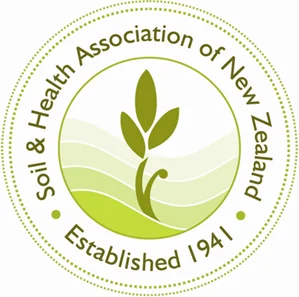
TOP IMAGE: iStock/heebyj

